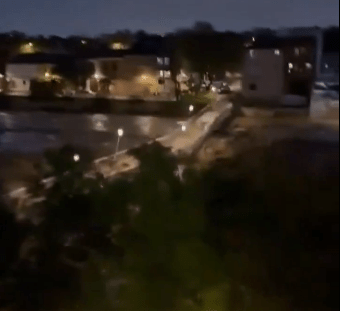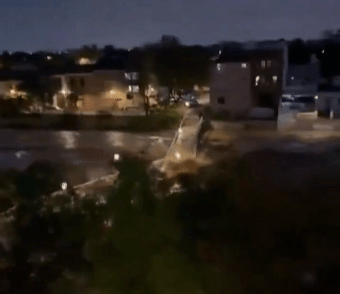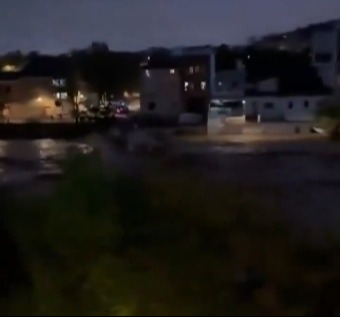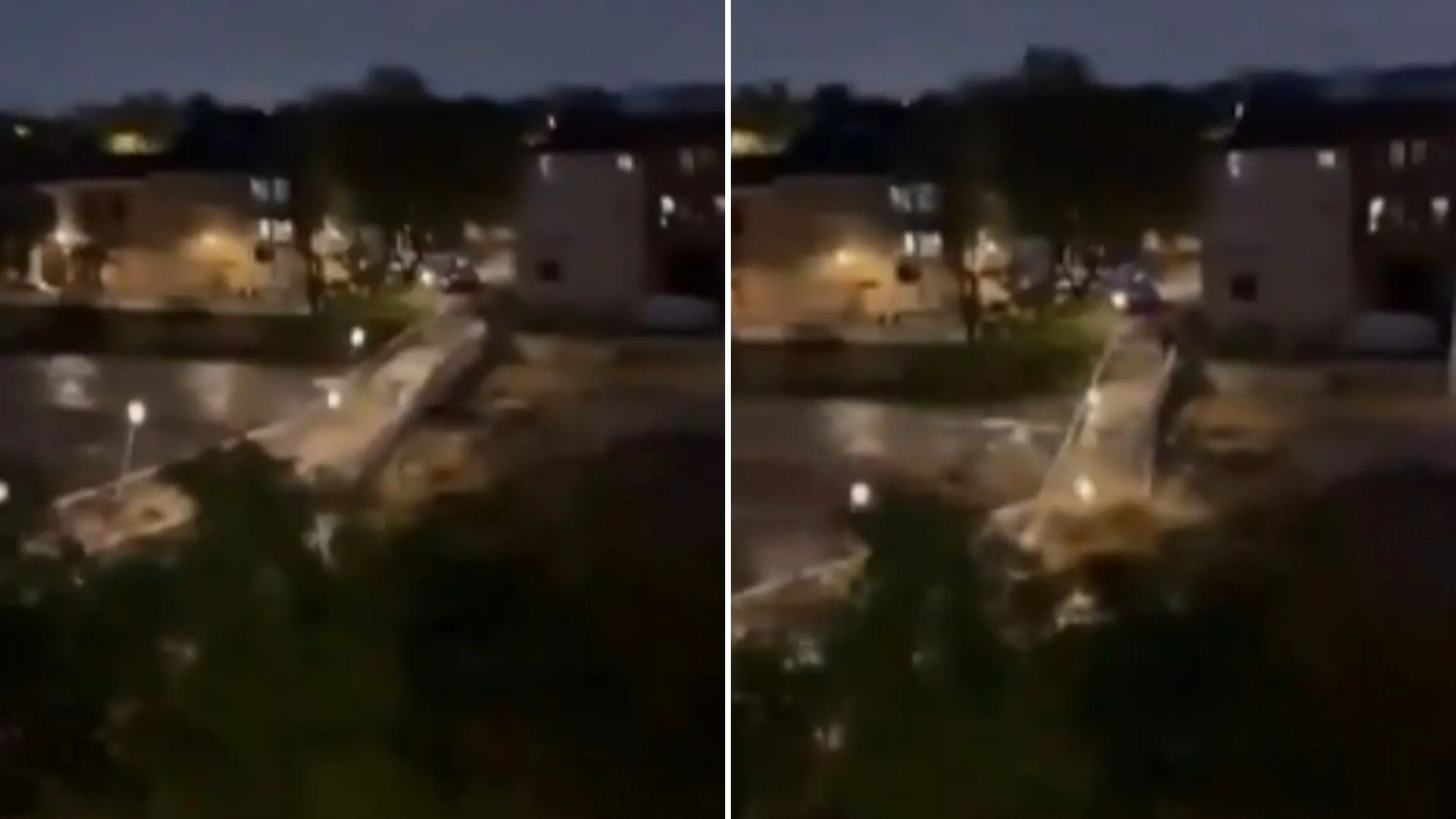Horror moment Valencia flash floods wipe out entire bridge in seconds in worst-hit town where 40 have been left dead …C0NTINUE READING HERE >>>
THIS IS the shocking moment an entire bridge is wiped out in mere seconds by catastrophic floods in Spain.
The horrifying footage was filmed in Paiporta, Valencia, where 40 people were killed in devastating storms that have rocked the country.
11
Paiporta Bridge before it was destroyed by the flooded river
11
As the torrents of floodwater smash into the bridge it bends in the middle and folds into itself
11
The Bridge collapses into the river sending up sprays of muddy water
11
Mere seconds after it…
>
